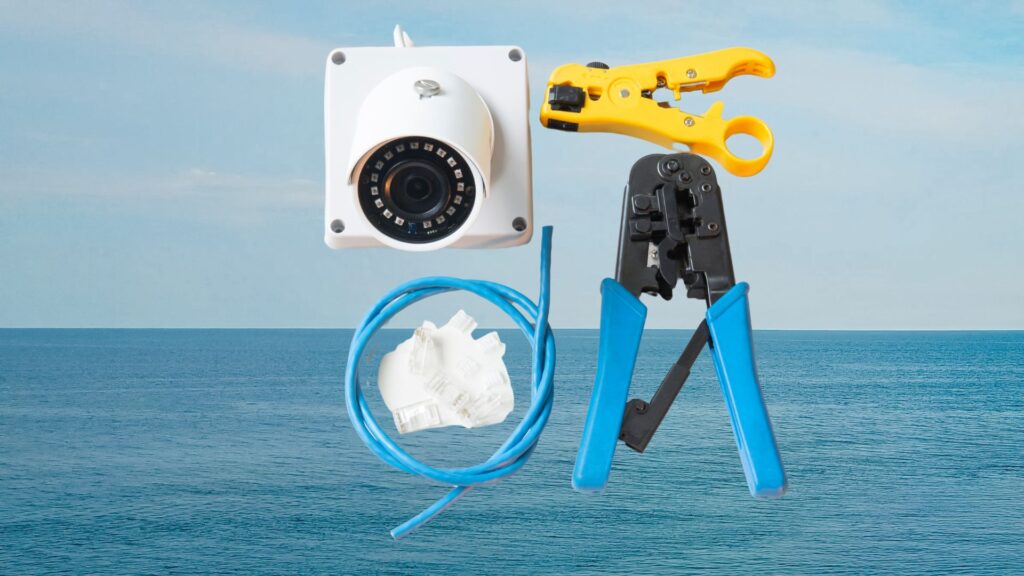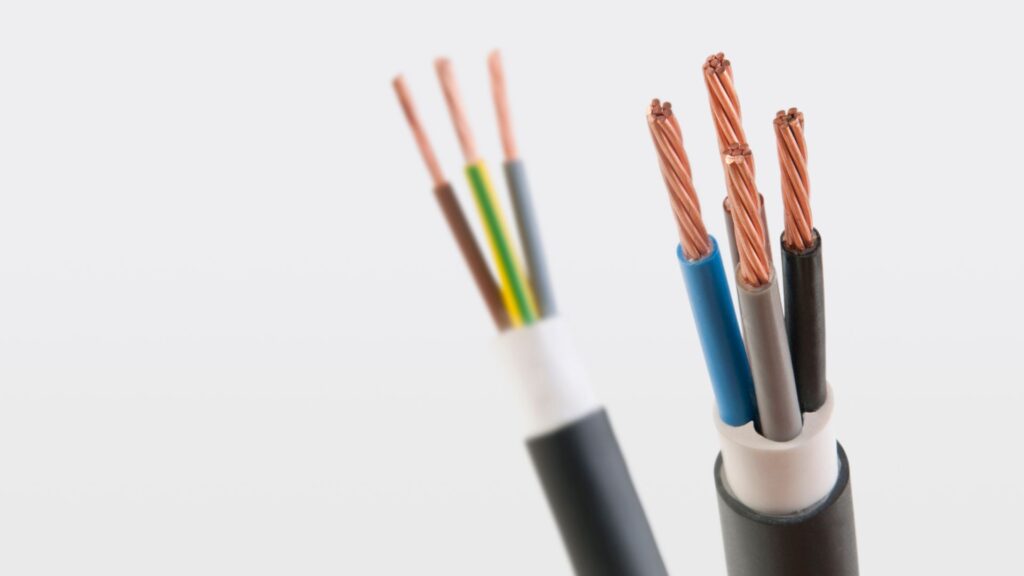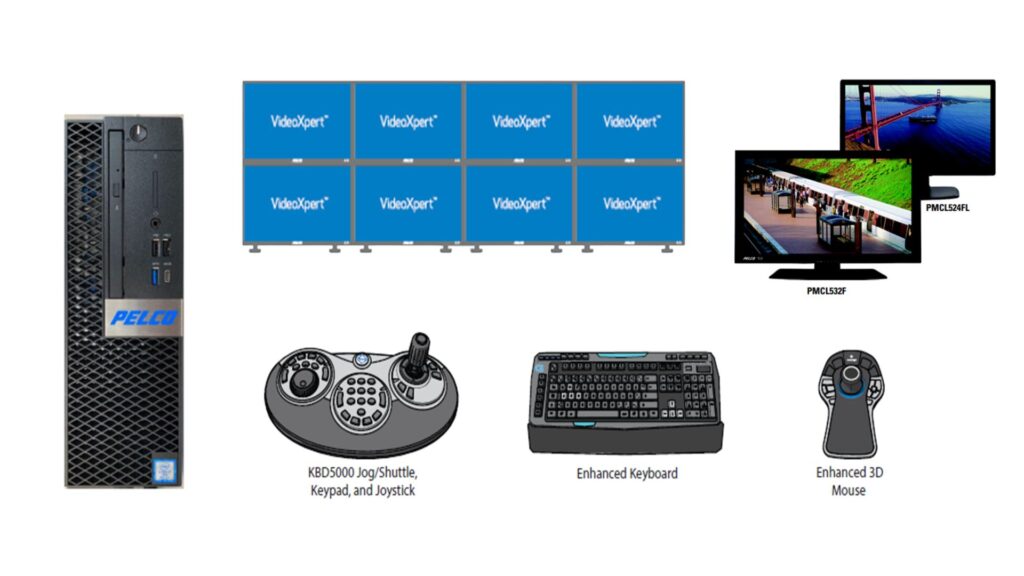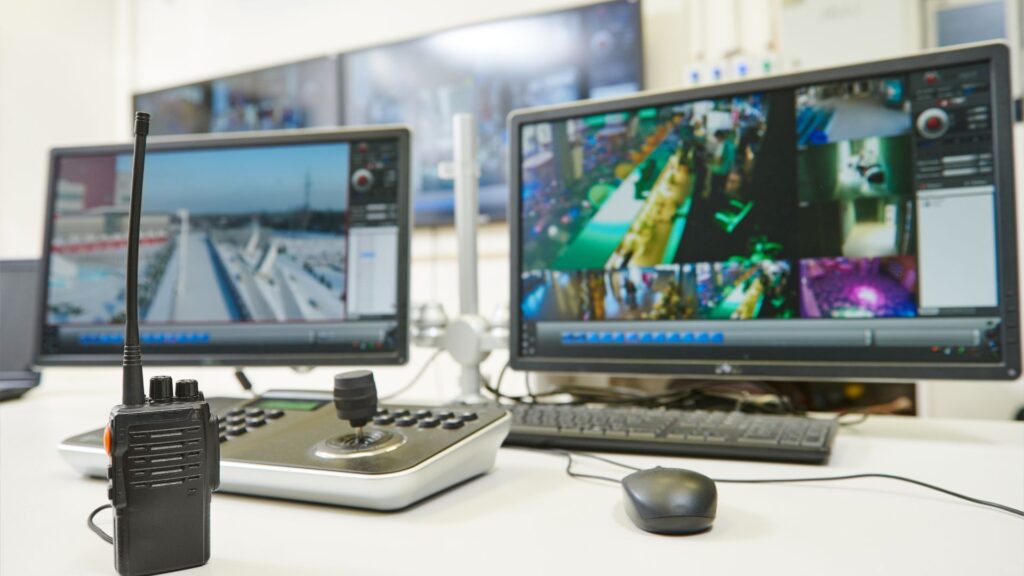Choosing the right type of cabling for CCTV systems on maritime vessels is essential to ensure reliable performance and longevity, given the unique challenges posed by the marine environment. Maritime vessels rely on CCTV systems to ensure safety, security, and operational efficiency.
Let’s dive into the factors determining the type of cabling used for CCTV system systems in marine environments.

Understanding the Environment
Maritime vessels operate in dynamic and often harsh conditions. They encounter saltwater exposure, extreme temperatures, vibrations from engines, and constant motion due to waves. These factors present significant challenges for maintaining reliable and effective CCTV systems.
Requirements for CCTV System Cabling
Durability
Cables used in maritime CCTV systems must withstand the rigors of the marine environment. They should be resistant to corrosion, moisture, and UV radiation to ensure longevity and reliable performance.
Flexibility
Given the complex layout of vessels and the need to navigate around obstacles, CCTV cables must be flexible enough to be routed through tight spaces and around corners without compromising signal integrity.
Signal Integrity
Maintaining high-quality video transmission is essential for effective surveillance. Cables should provide excellent shielding to minimize electromagnetic interference (EMI) and radio frequency interference (RFI), ensuring clear and stable video feeds.
Waterproofing
Since maritime environments involve exposure to water, CCTV cables should be waterproof to prevent damage from moisture ingress. This feature is critical for outdoor cameras and those installed in areas prone to splashes or immersion.

Types of Cabling
Marine-Grade Coaxial Cable
Coaxial cables are commonly used for CCTV systems due to their ability to transmit high-quality video signals over long distances. Marine-grade coaxial cables feature enhanced insulation and corrosion-resistant materials, making them suitable for maritime applications.
Shielded Twisted Pair (STP) Cable
STP cables consist of pairs of insulated copper wires twisted together and surrounded by a protective shield. They offer excellent noise immunity and are suitable for transmitting video signals in environments with high EMI and RFI.
Fiber Optic Cable
Fiber optic cables transmit data using light signals instead of electrical signals, offering high bandwidth and immunity to electromagnetic interference. While more expensive than coaxial or STP cables, they are ideal for long-distance CCTV transmission on large vessels.
Waterproof Connectors
In addition to the cable itself, the connectors used in maritime CCTV systems must also be waterproof to prevent water ingress and ensure reliable connections in wet environments.
Talk To An Expert
CCTV systems are indispensable for maintaining security and operational efficiency on board maritime vessels. Talk to the experts at Vivo Asia to design, install and implement a reliable CCTV system for a maritime environment.
With over 10 years of experience in designing and installing telecom, IT and ELV systems for industries that operate in harsh and hazardous environments, we are well-versed in industry regulations.


